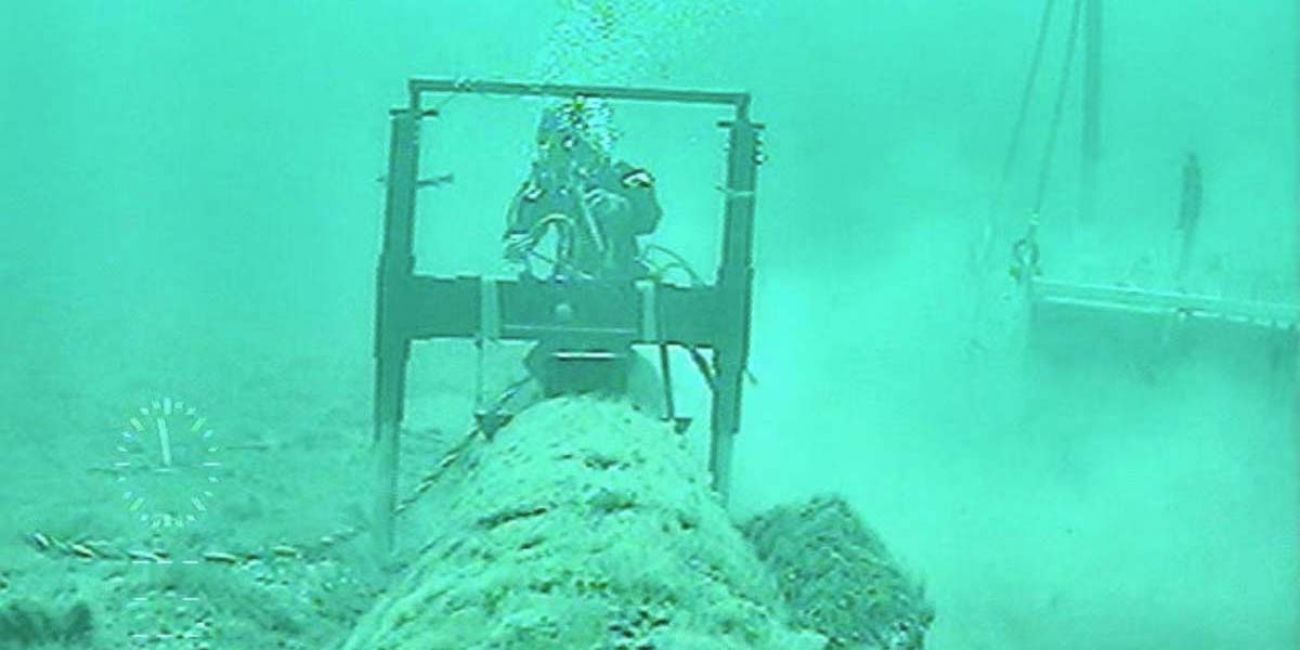Enbridge moves forward with Line 5 tunnel despite coronavirus lockdown


The owners of the aging Line 5 oil and natural gas pipeline want Michigan regulators to declare that they don’t need state permission to construct a replacement pipeline deep beneath the Straits of Mackinac.
The request to the Michigan Public Service Commision is part of a wave of applications that Enbridge, a Canadian conglomerate, has submitted to state and federal regulators in recent weeks to begin construction on the $500 million project next year.
Enbridge spokesperson Ryan Duffy said the applications are “another step in moving forward” and consistent with a timeline laid out in a 2018 agreement with the state.
- The latest: Michigan coronavirus map, locations, updated COVID-19 news
- What Michigan's new coronavirus stay-at-home executive order means
- Can you buy seeds in Michigan? Confusion reigns over Whitmer stay-home order.
- When Michigan unemployment, stimulus checks, and $600 CARES money will arrive
But pipeline foes contend permitting should be delayed until Michigan’s coronavirus crisis ends to allow citizens to fully engage in the process.
“Urgent matters relating to health, safety, financial, or security should receive the state’s full attention rather than unrelated new or pending actions requiring robust public engagement and input,” an opposition group, Oil & Water Don’t Mix, wrote on April 8 to Gov. Gretchen Whitmer.
During a virtual meeting on Wednesday, the Michigan Public Service Commission voted to seek public comment on Enbridge’s most recent request, which asks the state to either approve its plan to site the pipeline or rule that the company already has approval.
Enbridge argues the commission’s 1953 approval of the existing pipelines covers its plan to replace the section running under the straits with a 30-inch diameter pipeline running through a concrete-lined tunnel deep beneath the lakebed.
In its application to the commision, the company’s lawyers argue the proposed pipeline “involves no more than maintaining and continuing to operate Line 5 by replacing and relocating one approximate four-mile segment of the over 600-mile line.”
The company also filed separate permit applications this month with the U.S. Army Corps of Engineers and the Michigan Department of Environment, Great Lakes & Energy to begin constructing the tunnel that would house the pipeline, and with EGLE seeking permission to discharge wastewater during tunnel construction and operation.
The 67-year-old Line 5 transports 540,000 barrels daily of crude oil and natural gas between Wisconsin and Ontario. Propane from Line 5 is an important energy source for many Upper Peninsula residents, but opponents contend the pipeline poses a catastrophic hazard to the Great Lakes.
A spokesperson for the state’s energy department said officials are reviewing Enbridge’s applications for tunnel construction and wastewater discharge, after which they will seek public comments.
“In keeping with the state’s effort to slow the spread of COVID-19, we are adapting our processes to handle these and other permit requests in a way that protects public health, complies with the law, and allows meaningful public participation and input,” EGLE spokesman Scott Dean said.
The Michigan Public Service Commission will accept comments until May 13 on the separate pipeline siting issue. Deliberations are in “the very early stage,” said Sally Talberg, commission chair, who noted the panel needs a legal analysis of Enbridge’s request.
Pipeline opponents argue that moving forward on permits during the statewide stay-home order stifles public engagement, particularly from lower-income and rural residents who lack reliable internet, and tribal governments that are operating with skeleton staffing during the statewide stay-home orders.
“We’re in essential mode, doing everything we can with as minimal a staff as possible because we feel an obligation to our citizens,” said Frank Cloutier, a spokesperson for the Saginaw Chippewa Indian Tribe, which opposes the pipeline.
“And the state of Michigan is still vigorously consulting on permits that have a negative impact on our environment in the face of a pandemic.”
While Enbridge awaits permit decisions, Line 5 remains in limbo within the court system.
The company agreed to the tunnel deal during the last month of the administration of former Gov. Rick Snyder, a Republican. His Democratic successor, Whitmer, campaigned for office on a promise to shut the pipeline.
So did Attorney General Dana Nessel, who in June filed a lawsuit in Ingham County Circuit Court alleging its operation is a nuisance that violates the public trust doctrine and the Michigan Environmental Protection Act.
Enbridge also faces legal challenges from municipal, tribal and citizens groups that argue the state erred in allowing the company to anchor the existing line to the bottom of the Straits.
In an April 6 letter to a state task force charged with considering alternative ways to deliver propane to the Upper Peninsula should Line 5 cease operating, Nessel reminded the group that the proposed tunnel is not a done deal.
“While Enbridge has proposed and is currently planning to construct a tunnel beneath the Straits to accommodate an eventual replacement for that segment of Line 5,” Nessel wrote, “the actual completion of that project is far from certain, and in any event, years away.”
RESOURCES:
- Hey, Michigan, here’s how to make a face mask to fight coronavirus
- Michigan coronavirus dashboard: cases, deaths and maps
- Michigan families can get food, cash, internet during coronavirus crisis
- How to give blood in Michigan during the coronavirus crisis
- 10 ways you can help Michigan hospital workers right now
- Michigan coronavirus Q&A: Reader questions answered
- How to apply for Michigan unemployment benefits amid coronavirus crisis
Michigan Environment Watch
Michigan Environment Watch examines how public policy, industry, and other factors interact with the state’s trove of natural resources.
- See full coverage
- Subscribe
- Share tips and questions with Bridge environment reporter Kelly House
Michigan Environment Watch is made possible by generous financial support from:
Our generous Environment Watch underwriters encourage Bridge Michigan readers to also support civic journalism by becoming Bridge members. Please consider joining today.
See what new members are saying about why they donated to Bridge Michigan:
- “In order for this information to be accurate and unbiased it must be underwritten by its readers, not by special interests.” - Larry S.
- “Not many other media sources report on the topics Bridge does.” - Susan B.
- “Your journalism is outstanding and rare these days.” - Mark S.
If you want to ensure the future of nonpartisan, nonprofit Michigan journalism, please become a member today. You, too, will be asked why you donated and maybe we'll feature your quote next time!




